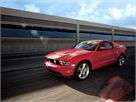Recent Articles
Popular Makes
Body Types
10 Predictions for Future Ford Vehicles
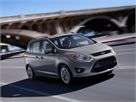
Ford has managed to update a significant portion of its lineup over the past few years, but more changes are on the way as the company continues to redefine its future as one of the strongest domestic automakers. Ford’s future itinerary includes moving away from a dependence on truck-based platforms, improving its overall fleet fuel economy and saying goodbye to some longtime models.
With so many changes on the horizon, it’s important to stay informed about how Ford will be repositioning itself as a car company and about what this means for some of its most – and least – popular vehicles. Let’s take a look at 10 things you need to know about Ford’s future models.
01. Ford Moves Away From Large SUVs
2011 saw the Ford Explorer move from its truck-based platform onto a sedan-sourced crossover chassis that maintains the vehicle’s seven-passenger capacity but which also reduces weight and allows for the use of the brand’s more fuel-efficient engine options. The dramatic repositioning of the Explorer is the tip of the iceberg for Ford when it comes to its large SUV strategy.
The stylish but slow-selling Ford Flex could be on the chopping block by 2013, and with the Edge occupying the mid-size segment and the new Explorer potentially being stretched to offer slightly larger interior accommodations it appears as though Ford may not directly replace the Flex crossover. The remaining truck-based SUV offered by the brand, the Ford Expedition, may also see its future in jeopardy due to slow sales and a delayed redesign that will force the current model to soldier on until at least 2014.
2011 Ford Explorer pictured
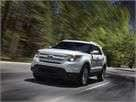
02. All-New Ford Focus Debuts in Early 2011
Ford will attempt to bring more of it Euro-magic to North America with the introduction of an all-new Ford Focus sedan and hatchback early 2011. Not only does the redesigned Focus make use of a much more modern and fun-to-drive platform that is shared with other editions of the car around the world, but it also offers the potential for the company to re-enter the sport compact car market through the development of a new Ford Focus SVT model.
The perfect engine for the Focus SVT would seem to be a four-cylinder edition of the turbocharged EcoBoost motor. With the potential addition of all-wheel drive to the mix, a top-spec Focus SVT could compete directly against vehicles like the Mitsubishi Lancer Ralliart.
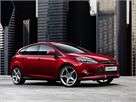
03. Ford Will Offer More Electric Vehicles
In addition to a potential performance model, the upcoming Ford Focus will also receive a battery-powered drivetrain for the 2012 model year. This zero-emissions automobile will be followed by several other pure electric and hybrid vehicles as part of Ford’s effort to further establish the company’s reputation as a purveyor of green automobiles.
These vehicles will join the all-electric Ford Transit Connect compact cargo / passenger van, which has been slowly rolled out over the past few months. The van offers a top speed of 75 miles per hour and it can travel as far as 80 miles on a single charge, which makes it ideal for in-city deliveries and service – as well as taxi duty.
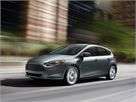
04. Ford Will Introduce a Compact Minivan
Ford has not offered a traditional minivan since the demise of the Ford Freestar in 2006, preferring instead to expand its crossover offerings as van-alternatives for growing families. Within the next few years the Blue Oval will once again join the minivan market with the Ford C-Max, a compact van that borrows the same platform used by the Ford Focus.
The C-Max has already hit Europe and once it makes it across the Atlantic it will come with a choice of four-cylinder engines – including a potential EcoBoost unit. The C-Max will seat seven passengers, and given that the compact minivan field offers only a single true competitor – the Mazda MAZDA5 – the C-Max could prove to be a swift-selling addition to the Ford lineup.
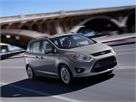
05. Ford Will Consolidate Platforms
Platform sharing is the name of the game for Ford moving forward, and not only do the C-Max and the Focus share the same underpinnings, but the upcoming redesign of the popular Ford Escape compact crossover will also move to a version of this soon-to-be-ubiquitous chassis. The Escape’s redesign will be linked to the introduction of the all-new Ford Kuga crossover in Europe.
A new and even smaller crossover could also join Ford’s North American stable through the dynamics of platform sharing. The company is currently exploring the feasibility of importing a redesigned edition of the Ford EcoSport, which is available in overseas markets and which is based on the Ford Fiesta platform.
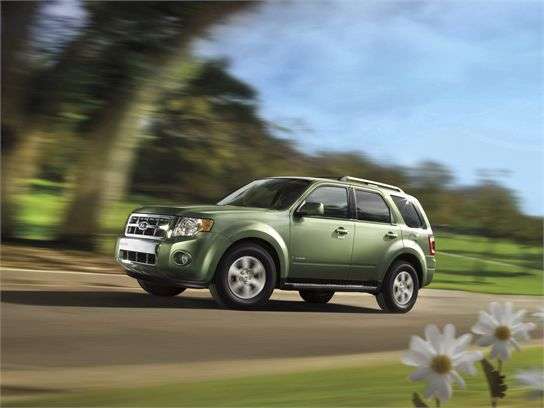
06. Ford Will Kill the Ford Ranger - And Not Replace It
The Ford Ranger has held its spot as the brand’s compact pickup truck since 1983, but a lack of investment in the vehicle’s platform (which has not been substantially altered since 1998) combined with uninspiring sales numbers have conspired to make 2011 the last year of production for the Ranger in the United States.
Outside of North America a very different Ford Ranger plies international highways, one which was completely redesigned for 2011. However, import tariffs imposed on pickups built outside of the U.S. have so far made it economically unfeasible for the compact truck to grace domestic showrooms. The market for small pickups has also shrunk dramatically over the past decade, shifting Ford’s focus to providing better fuel economy for its full-size F-150 rather than pour dollars into a revival of the Ranger line.
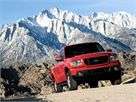
07. Ford Will Also Say Goodbye to the Ford Econoline Van
Joining the Ranger on the dust heap will be the Ford Econoline van. The full-size cargo and passenger van has been granted a stay of execution that could potentially last until 2014, but the writing is on the wall for the large vehicle whose primary customers are commercial fleet buyers.
The reason behind Ford’s decision to deep-six the full-frame Econoline is a desire to replace it with what would be an essentially larger Ford Transit Connect. This would help improve Ford’s overall corporate fuel economy as well as help to better compete against newcomers like the Nissan NV series of vans.
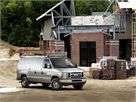
08. Ford Will Accent Fuel Economy
The death of so many older designs and the departure of truck-based SUV and van platforms are part of Ford’s desire to ramp up corporate fuel economy. The disappearance of heavy, antiquated technologies is joined by the introduction of a greater number of compact vehicles as well as the production of electric drivetrains and more fuel efficient engines.
Even Ford’s venerable F-150 lineup will see a dose high technology installed under the hood thanks to the recent availability of the twin-turbo EcoBoost V-6, which offers substantial power without exacting a high price at the fuel pump. The next stage in Ford’s EcoBoost strategy is to deploy as many four-cylinder editions of this technology as possible, across both sedan and crossover designs.
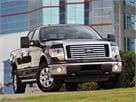
09. Ford Will Push High Tech Features
Battery-powered cars and EcoBoost engines are definitely high tech, but Ford has also elected to democratize certain aspects of its high tech investment strategy through the introduction and refinement of systems like SYNC. The next-generation SYNC vehicle communications and entertainment interface will be joined on future Ford models by the Ford MyTouch system.
Ford MyTouch, which is already available on certain 2011 models produced by the company, replaces traditional gauges and vehicle controls with a series of LCD screens and touchscreens. These screens can be customized to provide specific information or display vehicle menus, and they can also interact with the SYNC system through a recently revamped voice command interface.
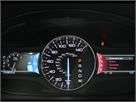
10. Ford Will Celebrate the Ford Mustang's 50th Anniversary in Style
The Ford Mustang is turning 50 years old in the 2014 model year, which means that the pressure is on for Ford to celebrate this milestone with a redesign of the current platform as well as a special model or two to further commemorate the occasion.
Originally, Ford intended the updated Mustang to share its platform with a number of different rear-wheel drive cars around the world, but recent economic events and market activity have pushed the company in the direction of building a platform exclusive to the coupe and convertible. In terms of design, the Mustang could potentially evolve into a high tech sports car or instead stay the course and maintain its current muscle car roots. The latter scenario seems most likely, given its current sales momentum. Ford also intends to lighten the Mustang, shrink its overall size and install an independent rear suspension to help improve its handling.
2011 Ford Mustang GT Pictured
